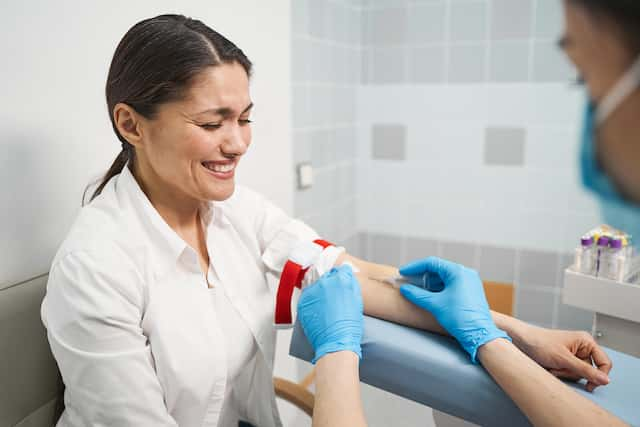
Gleneagles Gold Package – Female
About The Package
Inclusions & Exclusions
Inclusions
Lab Investigations (20 tests):
-
Blood Grouping & Rh Typing
-
Fasting Blood Sugar
-
Post-Prandial Blood Sugar
-
Complete Blood Count (CBC)
-
Erythrocyte Sedimentation Rate (ESR)
-
Glucose-6-Phosphate Dehydrogenase (G6PD)
-
HbA1C (Average Blood Glucose Levels)
-
Hepatitis B Surface Antigen (HBsAg)
-
Hepatitis C Virus (HCV) Screening
-
HIV-Duo Screening
-
Kidney Function Test
-
Lipid Profile
-
Liver Function Test
-
Prothrombin Time – International Normalized Ratio (PT-INR)
-
Serum Electrolytes
-
Stool Routine Examination
-
Thyroid Profile (T3, T4, TSH)
-
Urine Analysis
-
Vitamin B12
-
Vitamin D3
Imaging & Other Diagnostic Tests (7 tests):
-
Electrocardiogram (ECG)
-
Echocardiogram (2D ECHO)
-
Bilateral Mammography
-
PAP Smear – Cervical Screening
-
Pulmonary Function Test
-
Ultrasound of Abdomen & Pelvis
-
Chest X-ray
Specialist Consultations (7 sessions):
-
Cardiology Consultation
-
Dental Consultation
-
Diet Counselling
-
ENT (Ear, Nose, Throat) Consultation
-
Eye Check-Up (Vision Screening)
-
Gynecology Consultation
-
General Physician Consultation
Additional Perk:
-
Complimentary Breakfast on the day of the health check-up
Exclusions
No advanced imaging (CT/MRI scans)
-
No genetic testing
-
Does not include treatment or medications beyond the scope of the diagnostic package
-
Any follow-up treatments or procedures advised post-checkup are chargeable
-
Hospital admission (if required) is not included
About The Treatment
A Health Check-Up is a preventive medical examination designed to assess your overall health status and detect early signs of diseases or risk factors. These check-ups typically include a series of physical examinations, laboratory tests, and diagnostic screenings tailored to age, gender, medical history, and lifestyle.
Routine health check-ups are essential for early detection of conditions such as diabetes, heart disease, hypertension, and cancer. They help doctors monitor critical indicators like blood pressure, cholesterol levels, organ function, and more. Depending on the package or provider, a health check-up can range from basic blood tests to advanced imaging like CT scans or full-body MRIs.
